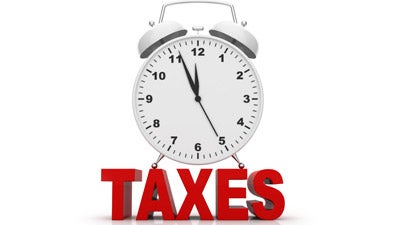
Prepping your small business taxes is never fun. The first time you try to do it, the experience can also be overwhelming. If you thought filing personal taxes was challenging, you’re sure not going to enjoy the mess of forms and other documents awaiting you.
It doesn’t have to be an unmitigated nightmare. By keeping neat records and starting early, you can significantly reduce most tax-related headaches.
It helps to know what you are getting yourself into. In this article, we take a look at the forms, deadlines, and documentation requirements required for filing business taxes. We also examine what you can handle yourself, and when you might find it beneficial to bring in a professional. Read on to learn more about what to expect when prepping your business taxes.
Business Taxes Forms
From a tax perspective, there are several different types of businesses. Before anything else, you will need to understand what type of business you own in the eyes of the IRS. While there are multiple categories your business could fall under, here is a breakdown of the three most likely to be relevant to you.
- Sole Proprietorship: Form 1040, Schedule C: Sole proprietors report business income and expenses on Schedule C, which is attached to their personal tax return (Form 1040).
- Partnership: Form 1065: Partnerships file an informational return using Form 1065. This form provides the IRS with details about the partnership’s income, deductions, gains, and losses.
- Schedule K-1: Each partner receives a Schedule K-1, which outlines their share of the partnership’s income, losses, credits, and deductions. Partners report this information on their individual tax returns.
- Single-Member LLC: File Schedule C with Form 1040.
- Multi-Member LLC (Partnership): File Form 1065 and provide Schedule K-1 to members.
The forms for each type of business are different so it is important to make sure you’ve identified yours correctly.
Tax Deadline
 While sole proprietors have a tax deadline of April 15th, certainly businesses, including multi-member LLCs, need to have their documents ready earlier. For them, the deadline is March 15th. While this earlier deadline doesn’t pose a problem for business owners who are aware of it, people who are newer to the scene may be caught off guard. Don’t let that happen to you.
While sole proprietors have a tax deadline of April 15th, certainly businesses, including multi-member LLCs, need to have their documents ready earlier. For them, the deadline is March 15th. While this earlier deadline doesn’t pose a problem for business owners who are aware of it, people who are newer to the scene may be caught off guard. Don’t let that happen to you.
Understand what is expected from your business well in advance so that you can start working on getting things ready early.
Financial Statements
The most basic and important information you will need for preparing your business statements is your financial statements. This will include a breakdown of your gains and losses. If you use financial software, it will actually be pretty easy.
Most programs can automate report generation, leaving you with little to do but verify the numbers. Just make sure you support your statements with as much physical documentation as possible.
Tax Deductions and Credits
During this phase, you will also look for any tax deductions and credits. This can include everything from payroll expenses and insurance to charitable donations that your business made throughout the year.
Accountants are particularly good for helping businesses identify credits and deductions that they are eligible for.
While they do charge a fee, it’s typically more than paid back to you in the form of a larger return.
Start Early
Preparing business taxes is almost always more complicated than personal tax filings. It isn’t just that the requirements are a little different— it’s that the volume of paperwork is much higher, and the standard for which you should document everything is also elevated.
The last thing that you want is to have your business audited. The best way to prepare for tax season is to maintain orderly records throughout the year. Once the tax year is over, start working with your accountant to figure out everything you need.
You may not get a medal for filing early, but you will gain valuable peace of mind.
Do You Need a Background in Finance to Handle Your Business’s Taxes?
Even though taxes are a huge headache, they are relatively simple in terms of business finance. You may not feel that way while you are filling out achingly dull forms and scouring your home and business offices for receipts from February, but it’s true.
The layperson can probably figure out most tax filing requirements on their own. For things they can’t figure out, there are reasonably priced accountants who generally justify their fees in the form of larger tax returns.
This is all to say that you don’t need a background in finance to file your taxes. However, that does not mean there is no reason to consider acquiring some background information on finance.
Owning a business involves a whole lot more work than many people realize from the outside. You lead marketing, sales, and customer service. You physically manage operations. If you have employees, you manage their concerns and schedules. If you don’t have employees, you do all the work a staff would have done.
Regardless of whether or not you have a background in finance, you will almost inevitably serve as your business’s finance department until you can afford to hire someone else to do it.
Some business owners find it worth their time to acquire a graduate certificate in finance. This is a great way to develop skills that will help you not just understand your business’s financials but also strategize around them on a higher level.
If you don’t want to commit to something like that, there are plenty of other ways to learn about managing your business’s money. Consider short workshops that will teach specific skills over a few days or weekends.
Also, look into online resources. There are a surprising number of free or low-cost online courses available that will show you the ropes.
What You Shouldn’t Do
The one thing you shouldn’t do is assume that you can figure out your business’s financials in real time. You should understand the basics of managing payroll, setting a budget, planning for future financial goals, and other such things before you start your business.
Filing taxes does not have to be a nightmare. Plan things out well in advance. Keep detailed, accurate records, and know your limitations.
849 Views












